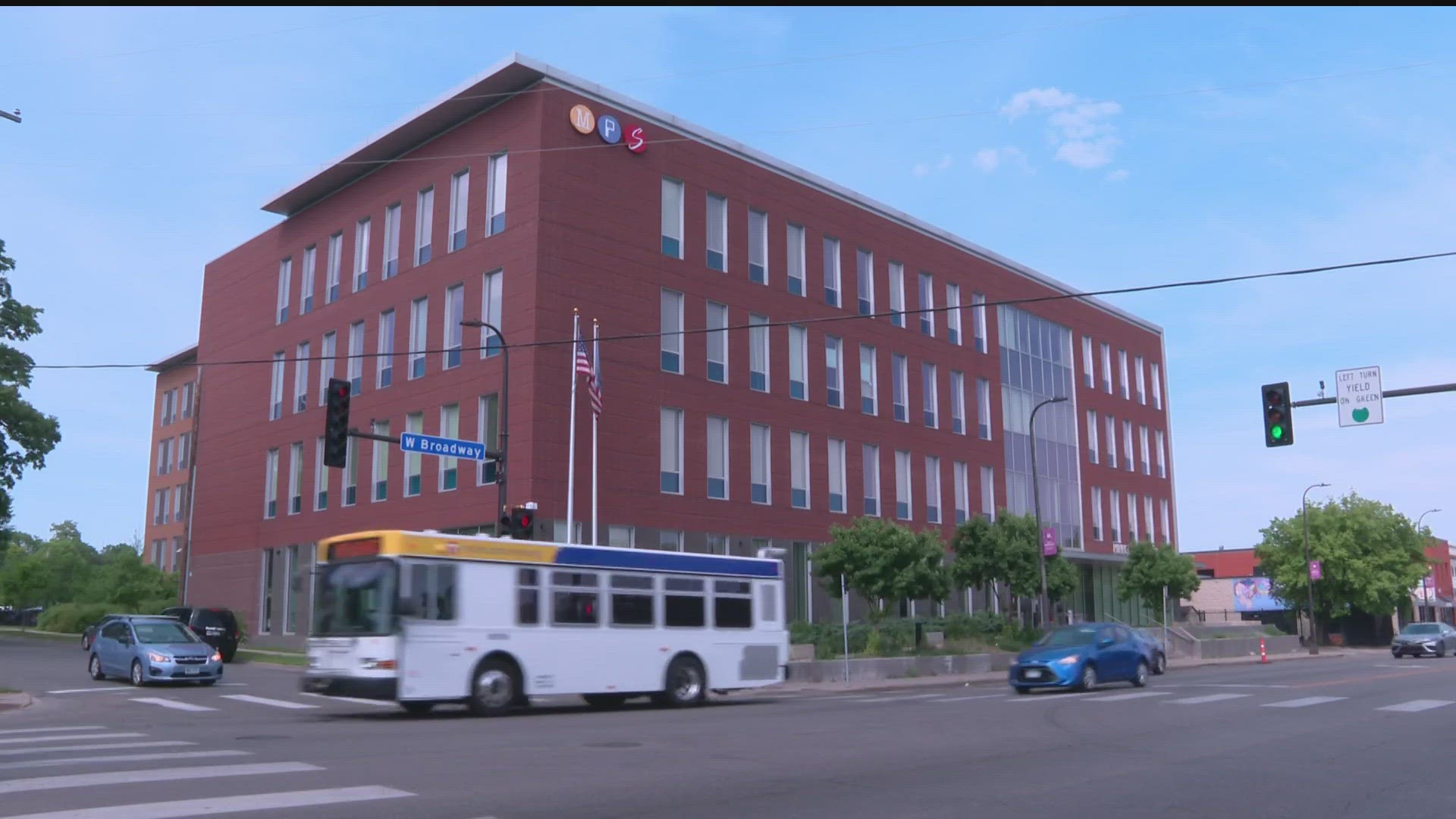MINNEAPOLIS — The Minneapolis School Board Tuesday was set to pass a $929 million dollar budget that envisions $48 million in deficit spending. It's a result of a number of factors, none the least of which is declining enrollment.
This is happening despite an anticipated $31 million increase in state aid next academic year as a result of historic education finance boosts passed by the Minnesota Legislature earlier this year.
The district will fill that gap with reserves, including pandemic aid money. But that source of funding will run out in the latter part of 2024, so some tough decisions are looming for those at district headquarters.
School Board member Kim Ellison said they haven't reached the point of talking about closing schools or massive layoffs, but the district will have to take major steps to get back into structural balance. The budget resolution on Tuesday's agenda anticipates leaving five percent of all district positions unfilled, something Ellison said would be achieved mostly through attrition.
Enrollment hovered in the 36,000 to 37,000 range for much of the last decade, and dropped to 30,362 in the 2022-2023 academic year. The state's basic aid is a per-pupil formula, so as enrollment falls, funding falls.
The district has a high percentage of children from lower-income families, as defined as qualifying for free and reduced meals. MPS also has a large number of students who are English language learners or receiving special education services.
Districts that can't balance the books go into what is known as statutory operating debt, which triggers added oversight by the Minnesota Department of Education. There are currently two districts plus four charter schools that have reached that status, which requires them to submit detailed plans for digging themselves out of the hole.
The district's bond rating with Fitch was recently upgraded for the first time in years, but board members are fully cognizant of the fact they're not out of the woods moneywise.
Student Podcast
Three South High School students -- Tennyson Stinson, Daniel Sather, and Ezra Kaner-Roth -- delved into the district's money woes in the What We are Owed Podcast they did for the VOICES and H-Art class taught by Laura Lanik and Delainia Haug.
"The idea for the podcast was to figure out why all these problems are occurring at South, so we just start looking at budgets and looking at spreadsheets," Tennyson told KARE.
They interviewed as many people as they could, including former Rep. Jim Davnie, who was a leading expert on school finance in the legislature.
"And what we found was so complicated that we as students had no way of understanding what was going on," Ezra explained.
"And we realized that someone at some foreign entity wasn't taking the money we deserve and that it wasn't getting there in the first place and indeed wasn't being given to us."
The boys started high school in the midst of a pandemic, and South was right next to ground zero for the social unrest that erupted after George Floyd's murder. Throw into that mix the historic teachers strike in 2022, plus the district's controversial redistricting plan that moved students and resources away from South.
Tennyson was attracted to South because of the band and orchestra program, which gradually disappeared.
"And at the end of last year, we learned the entire position of band director was being cut. There is no band director at South High School," Tennyson said.
"It's been really hard to watch my favorite programs and these very important classes to me just lose support and lose resources, and continue to shrink."
Ezra had been drawn to South because of the school's exceptional theater program. Staffing was cut and budgets dwindled to the point that the school could no longer stage musical productions.
"Seeing the money that was supposed to be there go down the drain and seeing my friends in other schools have very successful musicals and plays and things that uplift the arts community, it was just very, very depressing to see," Ezra remarked.
The podcasting students also learned that Minneapolis faces unique responsibilities, making the budget crunches even more difficult to absorb.
"Rep. Davnie told us about a study that showed the Minneapolis Public Schools needs about 70 percent more funding than basically every other place in the area," Ezra recalled.
"And it's because of all these extra things they're putting on them not because they're wasting money."
The district's special challenges also stood out for Tennyson.
"Our district is required to provide these many services and they’re not fully funded. We learned Minneapolis Public Schools, because we have all of these buildings spread out across the city, it’s a really expensive district to operate compared to other school districts."

